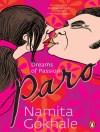»Orlando« ist alles: die wundersame Geschichte einer Verwandlung, eine Jagd durch die Jahrhunderte, Gesellschaftsporträt, der schönste Liebesbrief der Literaturgeschichte und ein Roman, der gegenwärtiger nicht sein könnte: Spielerisch, furios und unvergesslich verhandelt dieses sprachliches wie stilistisches Wunderwerk, wie flirrend und leicht Identitäten und Lebensentwürfe sich aufzulösen, wandeln und zu etwas ganz Eigenem werden können. Eine camelionhafte und übermütige Geschichte, die mit einem jungen Höfling im 16. Jahrhundert beginnt und mit einer Autorin in Virginia Woolfs eigener Zeit endet.
عن المؤلف
Virginia Woolf wurde am 25. Januar 1882 als Tochter des Biographen und Literaten Sir Leslie Stephen in London geboren. Zusammen mit ihrem Mann, dem Kritiker Leonard Woolf, gründete sie 1917 den Verlag The Hogarth Press. Ihre Romane stellen sie als Schriftstellerin neben James Joyce und Marcel Proust. Zugleich war sie eine der lebendigsten Essayistinnen ihrer Zeit und hinterließ ein umfangreiches Tagebuch- und Briefwerk. Virginia Woolf nahm sich am 28. März 1941 in dem Fluß Ouse bei Lewes (Sussex) das Leben.












